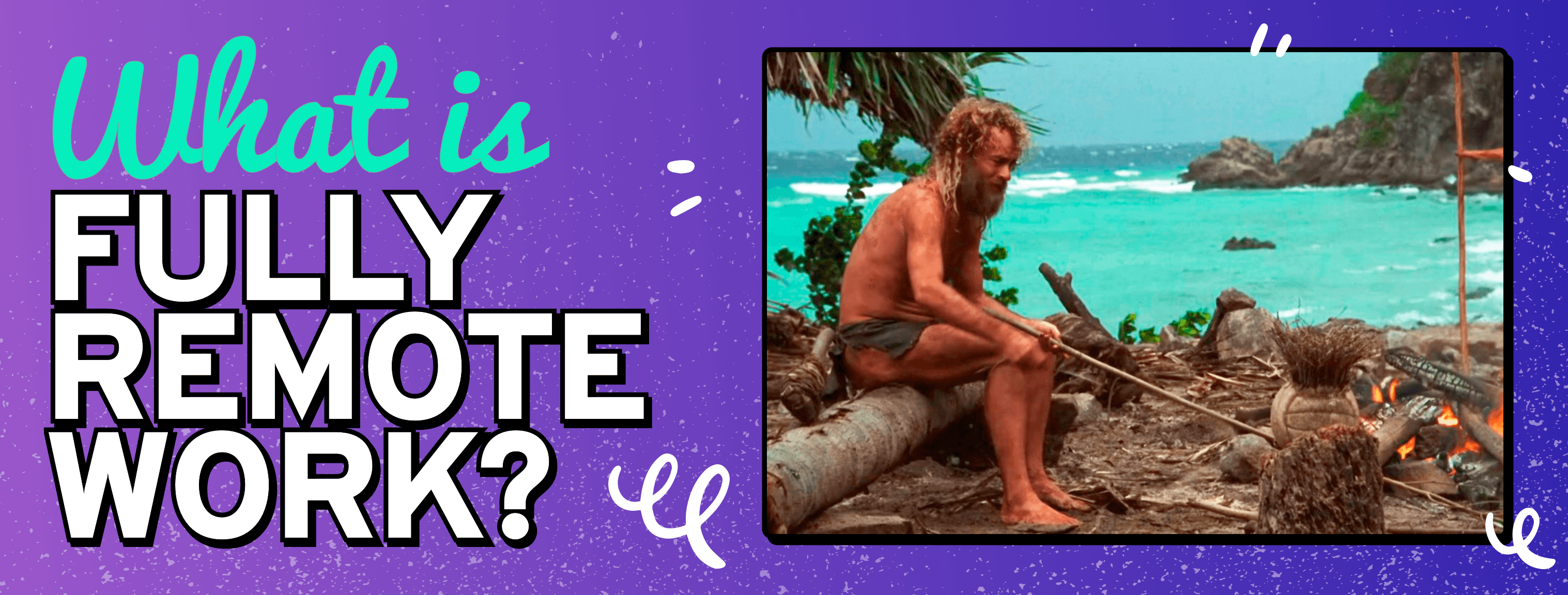What is fully remote work?
In this blog, we explain what fully remote working is, the benefits for both employees and employers, and how to find a fully remote role.
9th Jul 2024

Fully remote work is completed outside of the physical office. This type of working arrangement doesn’t mean you need to be tied to your desk; you can work in other remote locations, such as your garden or a local coffee shop. This isn’t to be confused with Work From Anywhere schemes, which do come with some tax implications that need to be considered.
What are the benefits of fully remote work?
Fully remote work is a highly sought-after benefit - it might not be the best option for everyone, but it’s loved by many and has some incredible advantages.
Spend less time commuting
For employees, fully remote work means reclaiming valuable time previously spent on commuting. This extra time can be used for personal activities like exercise, family time, or household tasks. There are also significant cost savings on transportation expenses, including fuel, public transport fares, and vehicle maintenance. The reduced stress associated with rush hour traffic or crowded public transport is an added bonus.
Employers benefit from having employees who arrive at work (virtually) fresh and less stressed. There's potential for earlier start times or increased flexibility in working hours. Companies can also reduce their need for office space and associated costs. Perhaps most importantly, employers gain the ability to hire talent from a wider geographical area, no longer limited by commute distances.
Greater flexibility = an improved work life-blend
Employees enjoy a better balance between professional and personal responsibilities with fully remote work. They can structure their workday around personal peak productivity times and integrate personal tasks into the workday, such as doing laundry or meal prep. This flexibility allows for more time dedicated to family, hobbies, and self-care.
For employers, this translates to happier, more satisfied employees, which often leads to increased loyalty and productivity. There's potential for extended service hours to clients or customers due to flexible schedules. Improved employee well-being can lead to reduced sick days and burnout. Additionally, offering remote work becomes an attractive perk for recruiting top talent.
More autonomy and trust
Employees experience an increased sense of ownership over their work and results when working remotely. This boosts confidence and job satisfaction while providing an opportunity to develop self-management skills. The reduced stress from micromanagement is another significant benefit.
Employers who offer remote work cultivate a culture of trust and responsibility. This encourages innovation and problem-solving skills in employees and reduces the need for constant supervision, freeing up management time. Ultimately, it creates a better work environment for everyone.
Increased motivation and productivity
Remote work allows employees to work in an environment with fewer distractions compared to a traditional office setting. This often leads to improved focus and concentration on tasks. The better work-life integration resulting from remote work typically leads to increased job satisfaction and motivation.
Employers benefit from higher output and quality of work from motivated employees. There's potential for extended working hours as employees integrate work into their lifestyle. Remote work often results in reduced absenteeism and improved employee engagement and commitment to company goals.
Reduced staff turnover
For employees, the increased job satisfaction that comes with remote work often leads to longer tenure. They have the ability to grow with the company without lifestyle sacrifices and are less likely to leave due to relocation or family responsibilities. Remote work can also open up more opportunities for career advancement within the company.
Employers see significant cost savings on recruitment and training with reduced turnover. They retain institutional knowledge and experienced staff, which improves team cohesion and company culture over time. An enhanced employer brand makes it easier to attract top talent in the future.
That being said, for fully remote work to be successful, companies need to understand how to effectively manage and communicate with distributed teams.
Some companies are already doing an incredible job, and we’re sharing the spotlight on some of them below.
What companies are fully remote?
Trust Keith combines real humans with technology to seamlessly manage your data protection.
People & Transformational HR is a connected, collaborative enterprise of conscious business activists. With audacious dreams framed by our mission and the pursuit of good work for all.
Attractions.io combines a guest-facing mobile app with a powerful operator console to give visitor attractions the ability to understand, analyse and influence their real-world experiences.
Circle is building the world’s leading all-in-one platform for online communities. We make it possible for creators, coaches, educators, and businesses to bring together their audience with engaging discussions, live streams, events, chat, courses, and payments — all in one place, all under their own brand.
Storyblok is on a mission is to pioneer the future of content management, removing barriers between developer and marketing teams by offering an intuitive, scalable, and intelligent platform to deliver digital experiences from idea to success.